
Press Center
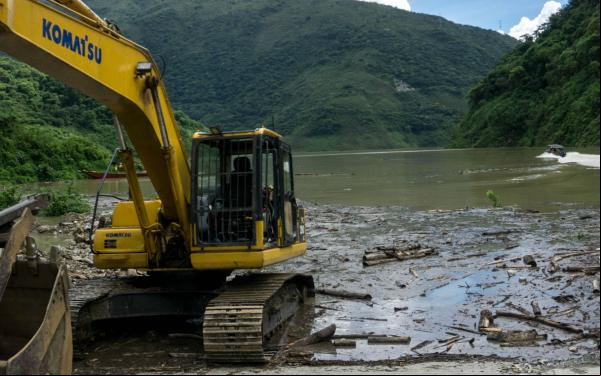
Inter-American Development Bank washes its hands of responsibility for dangerous Hidroituango dam and related human rights violations in Colombia
Fearing imminent collapse of the dam, communities in Antioquia, Colombia, have learned that the public lending arm of the Inter-American Development Bank (IDB) will not be investigated. Washington, DC — Last month, the Board and management of the Inter-American Development Bank (IDB) announced it would not approve an investigation of the Bank’s role in financing the construction of the controversial Ituango Hydroelectric Project (Hidroituango) in Colombia. The decision disregards allegations of acute and far-reaching harms caused by the project, including a humanitarian crisis that has displaced hundreds of families and caused human rights abuses, including assassination and intimidation of community who oppose the project. The announcement comes more than a year after communities affected by the construction of the Hidroituango dam on the Cauca River in Antioquia, Colombia, filed a claim with the Independent Consultation and Investigation Mechanism (MICI). The claim, signed by more than 400 individuals affected by the dam, sought recourse from the MICI for the IDB’s alleged failure to comply with its own environmental and social safeguards. "We publicly denounce the IDB’s decision to evade its responsibility for the environmental damage and human rights violations resulting from the Hidroituango project, and we condemn the role of the MICI in facilitating and manifestly ing this decision,2 remarked Isabel Zuleta, representative of Movimiento Ríos Vivos Antioquia. "It is unconscionable that the IDB is attempting to rewrite history by absolving itself from its responsibility for enabling and financing high-risk development projects that have extreme environmental impacts and blatantly violate human rights," added Zuleta. The IDB has two lending arms, one that invests in the public sector (the IDB) and another that invests in the private sector (IDB Invest). The MICI is the ability mechanism of the bank, in charge of evaluating environmental and social compliance of the institution’s investments. The IDB initially invested in the Hidroituango project in 2012, which paved the way for and facilitated millions of dollars of additional investments from the IDB, as well as an additional billion from other international banks. The MICI, whose mandate is to provide ability for harms caused by IDB investments, recommended no investigation of the IDB’s role in the project. Despite the decision not to review the IDB’s compliance, the MICI could continue its investigation regarding IDB Invest’s investment in the Hidroituango project. However this will depend completely on approval by the Bank’s Board. Before the dam was approved, communities warned of precisely the environmental and social impacts that have occurred. "For an institution that seeks to improve the lives of people in Latin America, the IDB’s decision is absurd, irresponsible, and disrespectful. It exemplifies a complete disregard for people living within the Cauca River Basin. Unfortunately, this disregard too often characterizes the IDB’s engagement in large-scale infrastructure projects throughout the region," said Alexandre Andrade Sampaio of International ability Project. "What is the value of environmental and social policies at the IDB, when they are ignored and dismissed precisely when they are most needed to protect people’s lives? This lack of ability is unacceptable, and it demonstrates why communities affected by the actions of development banks have found it necessary to resort to the courts to secure their rights," remarked Carla García Zendejas, Senior Attorney at the Center for International Environmental Law (CIEL), in reference to the recent US Supreme Court decision in Jam v. IFC, which recognized that international organizations such as the IDB are not immune from litigation in US courts. "This decision exemplifies the perils of an ability mechanism that lacks the independence and legitimacy to initiate and carry out a genuine investigation of a bank’s projects," added García Zendejas. "Since day one, the Hidroituango project carried out a weak impact assessment, inaccurate surveys of affected people and deficient environmental implementation and monitoring, but the IDB has continued to invest in it," sustained Carlos Lozano, Senior Attorney at the Interamerican Association for Environmental Defense (AIDA). "The project was approved and is under construction without having previously carried out an evaluation of alternatives," he pointed out. of Movimiento Ríos Vivos Antioquia, who represent affected communities in the complaint, continue to receive ongoing threats and suffer intimidation, homicides, and other forms of violence. The IDB has shown its disregard for the volatile situation surrounding Hidroituango, including the continued presence of paramilitary groups in the area. The IDB has also ignored community requests to delay dam construction to exhume mass graves from the armed conflict in the area affected by the dam. Press s: Isabel Zuleta, Movimiento Ríos Vivos Antioquia, +57 3217347264, [email protected] (Spanish) Carla Garcia Zendejas, Center for International Law, +1 202 374 2550, [email protected] Alexandre Andrade Sampaio, International ability Project, [email protected] Carlos Lozano Acosta, Interamerican Association for Environmental Defense, [email protected] Note for editors: The Ituango hydroelectric plant will be the largest in Colombia, with a 49-mile (79 km) reservoir that will flood a surface of 11,120 acres (4,500 hectares). The IDB Group has financed the project through various types of investment: initially $2 million in technical cooperation for the Colombian State in 2012 and then $550 million in direct investments in 2016 to Empresas Públicas de Medellín (EPM), the company in charge of the project. Additionally, the IDB manages a $1 billion dollar loan package, with funds from multiple institutional investors, including European banks. After a construction failure at the dam construction in May 2018, more than 25,000 people had to be evacuated from the area due to flooding, landslides, and avalanches. The humanitarian crisis has worsened dramatically: people have lost their property, livelihoods, and access to health and education services, which have always been meager in the area. Many people have been displaced and those who have stayed are not properly cared for. In addition, people who are of Movimiento Ríos Vivos are discriminated against. There is a lack of food, people suffer from diseases, and shelters are deficient. People are pressured to return to risk areas and sign documents waiving their claims. In short, communities are facing a situation of systematic human rights violations as a result of the project.
Read more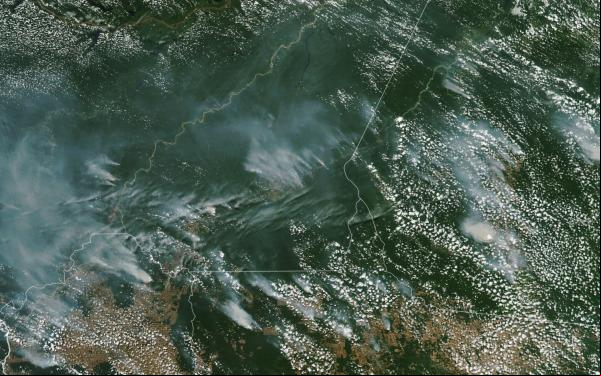
AIDA Statement on the crisis in the Amazon
AIDA expresses deep concern about the grave situation confronting the Amazon, which is being ravaged by a large number of fires in Brazil and other Amazonian countries. The consequences of these fires are devastating for the biodiversity of the area and for the communities that inhabit it, but also for the planet, which is facing a climate crisis that requires increasingly urgent and effective actions. The Amazon holds 20% of the Earth's unfrozen fresh water and is home to a quarter of the world's species. In addition, the Amazon jungle releases about 20% of the oxygen we breathe and stores 90 to 140 billion tons of carbon dioxide, regulating the global climate. The international scientific community has emphatically pointed out that the destruction of tropical forests causes 20% of greenhouse gas emissions. For this reason, the Amazon ecosystem is vital for mitigating the climate crisis. The current fires demonstrate that the Amazon is now more vulnerable than before due to a combination of factors, including increased droughts, deforestation, unsustainable use of soil and subsoil, and the increase in global temperatures. The record number of fires in the Amazon rainforest aggravates the climate crisis and with it the threat of increasingly harmful natural disasters. The policies, rhetoric and actions of Jair Bolsonaro's government have the same impact, actively dismantling due protection of the Amazon and its indigenous peoples. They irresponsibly promote the expansion of the agricultural, livestock and extractive frontier in the Amazon, resulting in increased deforestation and the consequences we are witnessing today. This worrying trend is repeated in the rest of the countries called upon to protect the Amazon basin—Bolivia, Peru, Ecuador, Colombia and Venezuela—whose governments also have not done enough to preserve the Amazon. AIDA urges the governments of the Amazon basin to adopt urgent measures to stop the fires. In addition, we call on citizens and the international community to pressure the governments of Brazil and the other countries of the region to reverse course and effectively protect the Amazon, its biodiversity, and the people who depend on it. We demand that governments take concrete actions to: Strengthen institutions and environmental norms, Immediately suspend rhetoric that encourages deforestation and the destruction of the Amazon, Stop the indiscriminate expansion of the agricultural, livestock and extractive frontier in the area, Adopt proper land use and planning, Ensure the existence and restoration of ecosystem life cycles, and Control deforestation and conserve the Amazon with the financial and technical of multilateral international cooperation. Learn more about our work in the Amazon. PRESS : Victor Quintanilla (México), [email protected], +5215570522107
Read more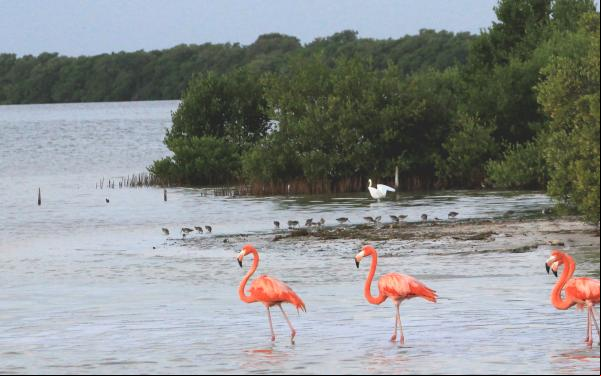
Defend Yum Balam, a key ecosystem for biodiversity and the climate
AIDA presented an amicus brief demonstrating the importance of the protected area, as well as Mexico’s international environmental and human rights obligations to preserve it in the face of a 21,000-room hotel project that would imply significant damage to the site. Cancun, Mexico. The Interamerican Association for Environmental Defense (AIDA) presented a legal brief (Amicus Curiae) before the Seventh District Court of the State of Quintana Roo to defend the Yum Balam Flora and Fauna Protection Area, located in the north of the state. In 2018, when the site's Management Program was published, private and communal landowners filed several lawsuits against the program and the decree that created the protected area, arguing that it affected their rights to participation, property, and legality. Prior to the publication of the Management Program, the Advisory Council of the protected area received a report from a consultant who recommended the construction within Yum Balam of a mega tourism project that includes 21,000 hotel rooms, deeming it economically viable. "That viability is in doubt because each hotel room would generate changes in land use, population growth, loss of flora and fauna, and other irreversible damages to the ecological characteristics of the place," said Camilo Thompson, AIDA attorney. "What is at stake is Yum Balam’s contribution to the enjoyment of a healthy environment for present and future generations." The decree creating the protected area, which dates back to 1994, puts the public interest and regulation of natural environments that benefit the entire country above private interests. The Management Program is aimed at regulating the conservation and sustainable use of Yum Balam. The site is considered a Priority Wetland of International Importance under the Ramsar Convention. "According to a study, Yum Balam's mangroves and sea grasses prevent 38.5 million tons of carbon dioxide from escaping, equivalent to the greenhouse gas emissions of 9.4 million Mexican people," said Pilar Diez, Regional Director of the Mexican Center for Environmental Law (CEMDA-Southeast). In its 152 thousand hectares, the site also has reefs and coastal dunes. It is home to more than 90 percent of the endemic birds of the Yucatan Peninsula, sea turtles with special protection status, whale sharks, dolphins, and endangered terrestrial species like the jaguar. In fact, in the Maya language, Yum Balam means Señor Jaguar. "Our brief seeks to document the national and international importance of Yum Balam in the context of the climate crisis," Thompson added. "Betting on the development of tourism megaprojects is incompatible with the urgent task of confronting this crisis and achieving climate justice.” Both the United Nations Intergovernmental on Climate Change (IPCC) and the Intergovernmental Platform for Science and Policy on Biodiversity and Ecosystem Services (IPBES) have been very firm about the current situation of ecosystem loss and the urgent actions that all countries must take in the face of the climate crisis. "We’ve documented the international legal framework under which the Mexican State is obliged to guarantee fundamental human rights, such as the right to a healthy environment," Thompson explained. "Mexico has the obligation to conserve its biodiversity, including coastal wetlands, forests, jungles and other ecosystems that regulate the climate and contribute to fishing and tourism." The Court's decision must reflect these obligations and uphold Yum Balam's protection. press : Victor Quintanilla (Mexico), AIDA, [email protected], +521 5570522107
Read more
Communities request international to save Bolivia’s Poopó and Uru Uru lakes
Local communities and organizations call on the Ramsar Convention to visit the lakes and issue recommendations for their preservation. The lakes are at grave risk from mining, river diversion and the climate crisis, threatening the subsistence of indigenous communities and the region’s unique plant and animal species. La Paz, Bolivia. Local communities along with a coalition of organizations request that the Ramsar Convention, an intergovernmental treaty for the protection of wetlands, send an expert mission to evaluate the health of lakes Poopó and Uru Uru, and issue recommendations to the Bolivian government for the urgent recovery of these key ecosystems. “The Ramsar Convention’s specialized knowledge on wetlands can be of great use to save lakes Poopó and Uru Uru,” said Carlos Lozano Acosta, senior attorney with the Interamerican Association for Environmental Defense (AIDA). These lakes are an important source of water for the plants and animals of the Central-Eastern Bolivian highlands, particularly for several endemic and migratory bird species. Lake Poopó is the second largest lake in Bolivia, after the iconic Lake Titicaca. Together, the lakes host the largest number of flamingos in the Bolivian highlands and, quite possibly, in the entire high Andean region of South America. These highland ecosystems are also home to unique species such as the Titicaca grebe (Rollandia microptera), an endangered species of flightless bird. The lives and livelihoods of peasant and indigenous populations—including Quechua, Aymara, and Uru Murato communities—depend on the preservation of lakes Poopó and Uru Uru. The Uru Murato are known as the “people of water” due to their dependence on the lakes, and are among the oldest native indigenous communities in Bolivia. “It was precisely to preserve the lakes that, in 2002, the government ed Poopó and Uru Uru as wetlands of international importance under the Ramsar Convention,” explained Sergio Vásquez, director of the Andean Communication and Development Center (CENDA). “As such, we ask that Ramsar the Bolivian government in the protection of these and other high Andean wetlands.” In December 2015, the water levels of Lake Poopó were reduced to such a degree that the body of water actually disappeared, in what is now considered one of the largest environmental catastrophes in the country. The causes were various: sedimentation produced by mining activity; the diversion of the lake’s tributary rivers; and natural phenomenon aggravated by the climate crisis. Although the lake’s levels have since increased in times of rain, the situation remains critical during the dry season. “We’re requesting that Ramsar experts identify measures to strengthen the surveillance and monitoring of these ecosystems,” said Angela Cuenca, of the Coordinated Collective for Socio-Environmental Actions (CASA Collective). “We’d also like them to recommend mitigation and restoration actions for the damages caused by mining activities.” The degradation of lakes Poopó and Uru Uru directly affects the wellbeing of the people who depend on them, causing harms to public health, particularly among women, girls and boys. The grave situation of the lakes forced the Uru Murato people, previously dedicated to fishing, to migrate for work in the mines, placing them among the region’s first climate refugees. “We indigenous and rural women live and feel the effects of pollution and the lake’s disappearance, because we are responsible for feeding and sustaining our families,” explained Margarita Aquino, from the National Network of Women Defenders of Mother Earth (RENAMAT). “These water sources are vital for our communities and for Mother Earth Press : Victor Quintanilla (Mexico), AIDA, [email protected], +5215570522107
Read more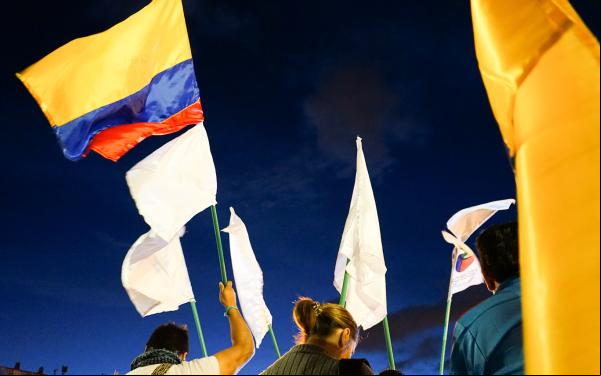
We Too Demand Peace: International Civil Society Organizations with Colombians Marching for Peace
Washington, D.C. Colombians march for peace in their country on July 26, we echo their call for a permanent end to the war that claimed 260,000 lives and forced 8 million people, the majority from Afro-descendant and indigenous communities, and mostly women and children, to flee their homes. We their call for the Colombian government to protect the social leaders building peace in their communities. Hundreds have been killed since the peace accords were signed in 2016, while many more live under the constant pressure of daily threats and attacks. This tragedy must end. We vigorously their demand that the Colombian government fully and faithfully implement the peace accords signed between the government and the FARC guerrillas—or this once-in-a-lifetime chance for peace will be lost. Finally, we call on the United States and the international community at large to back the effective implementation of the peace accords wholeheartedly. We stand in solidarity with the millions of Colombians who are struggling to build a just, complete, and lasting peace and who tomorrow say #26deJulioElGrito. Signed, 350.org Abogadas y Abogados para la Justicia y los Derechos Humanos Acción Solidaria ActionAid USA AFL-CIO ÁGORA Espacio Civil Paraguay Amazon Watch Asistencia Legal por los Derechos Humanos A.C. (ASILEGAL) Asociación Interamericana para la Defensa del Ambiente (AIDA) Center for Justice and International Law (CEJIL) Center for Reproductive Rights Centro de Derechos Humanos Fray Bartolomé de Las Casas, A.C. - México Centro de Derechos Humanos y Ambiente (CEDHA) Centro de Documentación en Derechos Humanos "Segundo Montes Mozo S.J." (CSMM) Chicago Religious Leadership Network on Latin America (CRLN) Christian Peacemaker Teams Ciudadanos en Apoyo a los Derechos Humanos, A.C. (CADHAC) CIVICUS - World Alliance for Citizen Participation Colombia Grassroot , New Jersey Colombia Human Rights Committee, Washington DC Comisión Ecuménica de Derechos Humanos Comisión Mexicana de Defensa y Promoción de los Derechos Humanos Comité de América Latina y el Caribe para la Defensa de los Derechos de las Mujeres Convergencia por los Derechos Humanos Coordinadora Nacional de Derechos Humanos Corporación Humanas Chile CSW Defensor de derechos humanos en México Equipo de Reflexión, Investigación y Comunicación de la Compañía de Jesús en Honduras (ERIC-SJ) Global Witness International Institute on Race, Equality and Human Rights (Race and Equality) International Labor Rights Forum International Rivers InterReligious Task Force On Central America and Colombia Latin America Working Group (LAWG) Movimiento Autónomo de Mujeres, Nicaragua Mujeres Libres COLEM, A.C. Grupo de Mujeres de San Cristóbal Las Casas, A.C. NJ Peace Council Not1More Oxfam Paz y Esperanza Presbyterian Church USA Presbyterian Peace Fellowship Red Para la Infancia y la Adolescencia de El Salvador (RIA) Redes por los Derechos de la Infancia (REDIM) Robert F. Kennedy Human Rights Servicio Internacional para los Derechos Humanos (ISHR) United Church of Christ, Justice and Witness Ministries Washington Office on Latin America (WOLA) Witness for Peace Solidarity Collective
Read more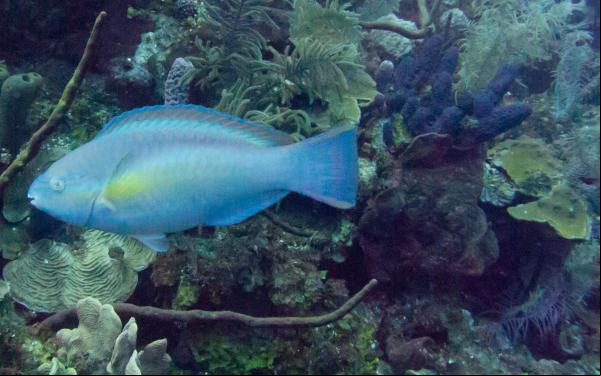
Resolution provides measures to protect corals in the Colombia Caribbean
Setting a positive precedent in Colombia and an important region of the Greater Caribbean, CORALINA has prohibited the fishing and commercialization of several species of herbivorous and omnivorous fish, a measure aimed at conserving the area’s coral reef ecosystems. San Andrés, Colombia. With the objective of conserving the coral reef and beach ecosystems of the Archipelago of San Andrés, Providencia and Santa Catalina, Colombia, the region’s autonomous corporation authority emitted a resolution prohibiting the capture and commercialization of several species of herbivorous and omnivorous fish. The waters around these Caribbean islands host the greatest marine and coastal biodiversity in Colombia, with more than 2,354 marine species ed to date. “This progress towards the conservation of corals and beaches occurs after a process of more than 20 years that included environmental education, research and monitoring,” said Nacor Bolaños, coordinator of protected areas for the Corporation for the Sustainable Development of the Archipelago of San Andrés, Providencia and Santa Catalina (CORALINA). “The need to protect parrotfish and other species of herbivorous and omnivorous fish was ed by artisanal fishermen themselves and by local communities, with whom we met.” The resolution issued by the decentralized public entity protects 14 species of parrotfish, four of surgeonfish, five of butterfly fish and six species of angelfish. It completely prohibits commercial, industrial, sport, or recreational fishing of these species. It also prohibits commercial fishing using harpoons and/or similar fishing gears. It also completely restricts their commercialization, possession and storage, as well as their transfer to other areas of the country. “The resolution is of great importance because it recognizes the benefits of corals for fishing, tourism, pharmaceutical resources, and protection against the impacts of the climate crisis,” said Maria José Gonzalez-Bernat, scientific advisor to AIDA. “It also recognizes the vital role several species of fish play in keeping these ecosystems healthy.” By feeding on algae that take away light and space from corals, herbivorous fish the survival of these fragile environments. Numerous studies have demonstrated that parrotfish contribute to the growth of corals and the creation of sand for beaches. Some omnivorous species like angelfish also help to clean algae from corals. AIDA has ed CORALINA’s initiative since its inception, providing technical, scientific and legal information; and has advocated for the inclusion in the resolution of international and regional commitments that protect these fish. The Archipelago of San Andrés, Providencia and Santa Catalina concentrates 77 percent of the surface coral areas of Colombia and houses the third largest coral reef in the world. The area was declared a UNESCO Biosphere Reserve in 2000, and borders eight nations of the Greater Caribbean: Venezuela, the Dominican Republic, Haiti, Jamaica, Honduras, Nicaragua, Costa Rica and Panama. Yet its coral coverage has deteriorated over time due to natural phenomenon and human activities, as have populations of herbivorous fish like the parrotfish. “In this sense, this regulation is an example for other countries with coral reefs along their coasts,” said Gonzalez-Bernat. “The resolution is based on scientific information and emphasizes the international legal framework that recommends the protection of corals and the fish that their conservation.” Press s: Victor Quintanilla (Mexico), AIDA, [email protected], +52 155 70522107 Claudia Marcela Delgado (Colombia), CORALINA, [email protected], +57 313 8517300
Read more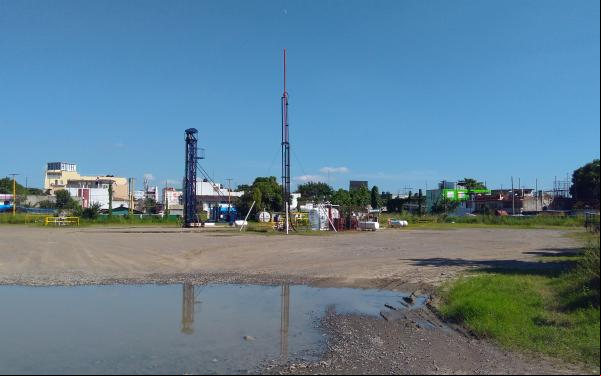
Colombia makes the right move by suspending fracking project
Citing a recent court order, Colombia’s environmental authority has suspended the licensing process for a fracking project in the Middle Magdalena Valley. The decision represents an advance in the movement to stop fracking’s expansion in Latin America. Bogotá. In an advance for the struggle against fracking’s expansion in Latin America, Colombia’s National Environmental Licensing Authority has suspended the licensing process for a fracking project in the Middle Magdalena Valley. With this decision, Colombia s a growing list of communities, municipalities, and regions across Latin America and the world who have made progress to stop the expansion of fracking in their territories, many through the enactment of bans or moratoriums. "The Environmental Authority’s decision is a positive example for nations across Latin America and the world,” said Astrid Puentes Riaño, co-executive director of AIDA. “It’s the result of an irable civic movement and of the use of the precautionary principle as a tool to protect human health and ecosystems, and to confront the climate crisis.” The decision to halt the process for Ecopetrol’s "APE Guane A” project is founded on the State Council’s suspension, in November 2018, of the regulatory framework for fracking in the country, citing the precautionary principle. The Interamerican Association for Environmental Defense (AIDA) s the Council’s decision and considers the Environmental Authority’s enactment of that order to be a step in the right direction. “In the absence of existing regulations on fracking, in Colombia we have a judicial moratorium. This implies that no project may be implemented that seeks to exploit unconventional oil and gas deposits using this technique,” explained Juana Hofman, AIDA attorney. “All activities aimed at the development of fracking activities must be suspended.” In its decision, the Environmental Authority states: “… The temporary suspension of the aforementioned provisions translates to those provisions being temporarily outside the legal system, which consequently means that this Environmental Authority does not have technical regulations that allow it to the management measures that should be included in the Environmental Impact Study, to be analyzed within the environmental assessment procedure, and thus could not determine whether or not the granting of the environmental license required for new projects in unconventional deposits was viable.” The suspended project involves the use of hydraulic fracturing in a boggy complex located between the municipalities of Barrancabermeja and Puerto Wilches in Northeast Colombia. Fracking, or hydraulic fracturing, is an extractive technique that proves incredibly damaging for water, air quality, human health and the climate. It emits methane, a pollutant strongly associated with global warming. Due to its negative impacts on the environment and public health, fracking has been prohibited by judicial or legislative means in many municipalities, regions and nations around the world, such as Scotland, the state of New York (USA), and the province of Quebec (Canada). Global efforts to stop fracking’s expansion have largely been citizen-led and driven by concerns for the risks fracking poses to the climate, environment and public health. The Alliance for a Colombia Free from Fracking has been steadfast in their commitment to stopping fracking’s advance in Colombia, and should be congratulated for this important advance. AIDA urges the Colombian government to continue down the path of prevention and to comply with its international environmental obligations to confront the climate crisis, and to protect its land, water and communities. We urge the government to deny authorizations for fracking operations in Colombia. “Fracking is a procedure that furthers us from our climate goals, and from the energy path that all nations should be targeting” Puentes Riaño said. “Decisions like these are an invitation to seek out renewable energies that are better for our planet and our communities, not only in Colombia but around the world.” Press s: Carlos Lozano Acosta (Colombia), AIDA, [email protected], +57 (300) 564 0282 Juana Hofman (Colombia), AIDA, [email protected], +57 (310) 884 6715
Read more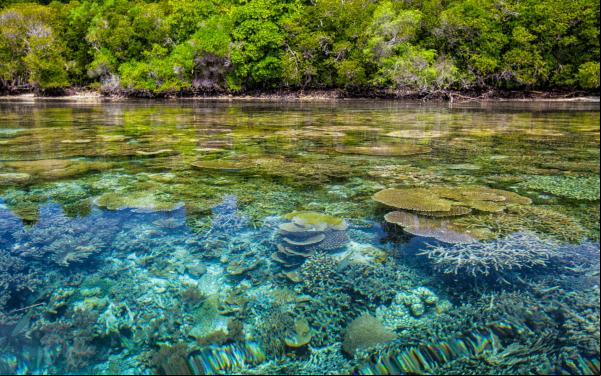
In historic decree, Costa Rica legally protects its corals
On the occasion of World Oceans Day, Costa Rica issued a decree to protect its vast coral ecosystems. We congratulate the government for taking this important step and setting a legal precedent for the protection of marine environments in the region. San José, Costa Rica. The Costa Rican government issued a precedent-setting decree today that legally protects its vast coral ecosystems from harmful human activities. Following years of work on the issue, the Interamerican Association for Environmental Defense (AIDA) and Conservation International celebrate this important instrument for the conservation of these fragile and vital marine environments. “We are very pleased with this advance, promoted by the Vice Ministry of Water and Seas, which guarantees the survival of coral reefs and the various species that contribute to their conservation—species like the parrotfish, which feed on the algae that can deprive reefs of oxygen,” said Gladys Martínez, senior attorney of AIDA’s Marine Biodiversity and Coastal Protection Program. The decree provides a series of measures the government must adopt in order to preserve reef ecosystems and the species that depend on them, threatened by a combination of unsustainable use, climate change, inadequate management, and invasive species. The measures include: the creation and implementation of science-based strategies and policies to confront the effects of climate change; and the restoration of degraded reefs. The law also prohibits harmful activities like the extraction and commercialization of reefs, dumping of waste, and anchoring. “It’s our hope that the legal precedent established by this decree will be replicated in other countries of the Americas that, like Costa Rica, are bound by international treaties to safeguard their corals,” said Magie Rodríguez, AIDA attorney. “In the coming years, we will be closely monitoring the decree’s implementation.” In 2012, AIDA and Conservation International ed forces with national experts to prepare a report detailing the economic and environmental benefits of corals, urging the creation of legislation in Costa Rica to protect them. AIDA also ed the Vice Ministry in the preparation of the decree based on the organization’s experience in international law and understanding of regulations in other countries of the region. “Costa Rica is a nation privileged by the dimensions of its marine spaces and biodiversity. The coral systems are incredibly productive, but they are also threatened by human activity and climate change,” said Marco A. Quesada Alpízar, director of Conservation International - Costa Rica. “By taking action on this issue, Costa Rica has assumed responsibility for the conservation and management of its marine ecosystems, and has set an example that can be replicated in other countries.” The decree answers a years-long call for Costa Rica to comply with international obligations and protect its threatened marine ecosystems. Scientific studies have shown that a large part of the coral reefs in the country are at great risk due to human activities including land-based pollution and destructive fishing practices. Their conservation must be a priority. “This decree fills an important gap in the regulation of coral reefs in Costa Rica. It recognizes, once again, that marine resources provide people with services and well-being, which requires they be adequately protected and managed,” explained Quesada. “Costa Rica is globally recognized for its ecotourism and natural richness,” added Ana Gloria Guzmán of Conservation International’s Oceans Center. “With this decree, the nation is setting an example about the protection and management of essential marine ecosystems as a means to ensure the health of the oceans and safeguard the well-being of coastal communities that depend on the services they provide.” press s: Victor Quintanilla, AIDA, +521 5570522107, [email protected] Kipp Lanham, Conservation International, (202) 412-5533, [email protected] Marco Quesada, Conservation International, +506 2253-0500 ext. 139, [email protected]
Read more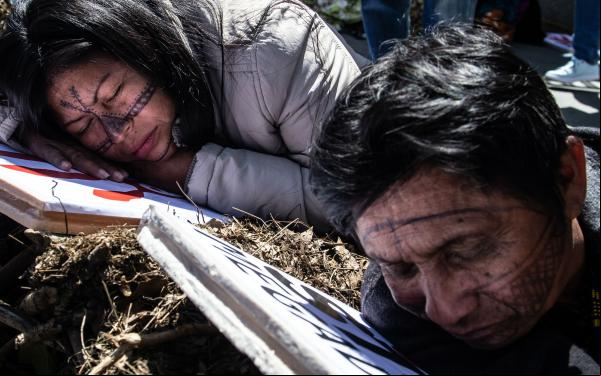
Protests Challenge Hydropower Companies at Global Event in Paris
Civil society organizations denounce corporate attempts to label hydroelectric dams as “green energy,” citing human rights abuses and environmental damage. Paris, —A coalition of activists, organizations and indigenous leaders convened a series of events this week in light of the opening of the World Hydropower Conference, calling attention to the socially and environmentally destructive nature of hydroelectric dams, as well at their climate-aggravating impacts. From May 14-16, the International Hydropower Association (IHA) is hosting its biannual World Hydropower Congress in central Paris. The industry seeks to portray hydroelectric dams as a clean source of renewable energy, which they claim are essential for delivering the Paris Climate Agreement and the United Nations’ Sustainable Development Goals. However, a broad coalition of environmental and human rights organizations, together with social movements, argue that the dam industry’s claims amount to greenwashing, and are aimed at capturing new sources of finance from institutions like the Green Climate Fund. They point to numerous cases where hydropower projects have provoked disastrous consequences for people and the environment. Citing mounting scientific evidence that dams are a significant source of greenhouse gases—CO2and, particularly, methane—civil society groups also highlight the role of dams in aggravating climate change. A t statement signed by more than 250 civil society groups from 70 countries calls attention to the false promises of hydropower and the urgent need for truly sustainable energy solutions. It is available in five languages. These and other issues—including the impacts of hydroelectric dams on natural and cultural heritage sites—were debated by scientists, activists and representatives of affected communities from Brazil, Colombia, Myanmar and Turkey in a parallel event to the IHA Congress, held at the Town Hall of the 6thArrondissement of Paris on May 13. The conference was organized by the NGOs Planète Amazone, GegenStrömung / CounterCurrent, Rivers without Boundaries, International Rivers, and AIDA. Myint Zaw, an activist and researcher from Myanmar who was awarded the 2015 Goldman Prize, was one of the speakers at the conference. “The food security of millions of people is threatened by dam projects planned for the Irrawaddy River that would impact important farmlands needed for rice production along the river and in delta region,” Zaw said. During Tuesday’s opening of the World Hydropower Congress, representatives of indigenous communities, social movements and non-governmental organizations protested together with activists from Extinction Rebellion in front of the Espace Grande Arche in La Défense. A focus of the protest was to call attention to the growing number of human rights and environmental activists murdered in dam-related conflicts. “Miguel Ángel Pabón Pabón disappeared as a result of his activism against the Hidrosogamoso Dam in Colombia, which has continued despite severe human rights violations,“ said Juan Pablo Soler from Movimiento Ríos Vívos of Colombia, mentioning one of many defenders lost. In Gabon, the Kingélé and Tchimbélé dams are adversely affecting populations living beside rivers. “During heavy rains, some villages are flooded when reservoirs overflow. Rivers turn into lakes, water becomes polluted and fish die intoxicated. There is no structure to help us on the ground, nor does the government hear our complaints, which is why we look abroad to issue a distress call,” proclaimed Assossa, a Pigmy leader. Three representatives of the Munduruku people from the Brazilian Amazon—Chief Arnaldo Kabá, Alessandra Korap and Candido Waro Munduruku—participated in both the parallel conference and the protest. After the protest, the Munduruku attempted to hand deliver a letter to the corporate headquarters of Électricité de (EDF), majority-controlled by the French government. EDF is involved in the controversial Sinop dam on the Teles Pires River, a tributary of the Tapajos, and has contributed to studies that promote the São Luiz do Tapajós mega-dam, which would flood Munduruku territory. EDF representatives refused to speak with the Munduruku leaders. “EDF invades our territory, destroys our rivers, our territory and our sacred places. And when we come here to deliver a letter to this huge company, we’re barred,” stated Alessandra Munduruku. “We’re sad, but we’re determined to continue our struggle to defend our territory.” Press s: Gert-Peter Bruch, Planète Amazone, [email protected] (French, English), + 33 (0)7 81 23 92 91 Brent Millikan, International Rivers, [email protected] (English, Portuguese), +55 61 8153-7009 Thilo F. Papacek, GegenStrömung – CounterCurrent / Forum Umwelt und Entwicklung, [email protected] (German, Portuguese, Spanish, English), ++49 151 412 145 19 Eugene Simonov, Rivers without Boundaries, [email protected](Russian, English, Chinese), +79 (0) 165 491 22 Resources: Further information about the parallel event from May 13: http://www.transrivers.org/2019/2634/ The t statement, available in Chinese, English, Portuguese, Russian and Spanish can be ed here: https://drive.google.com/open?id=1pgS3YHm4zy5_LFSSjRe0KH-DMK773DQI Link to the Munduruku letter of protest to EDF: Électricité de (Portuguese and English):https://drive.google.com/file/d/1TxqIiOuJDxNUI2YKPtUBrE_wucJLFl-E/view?usp=sharing Press photos available free of charge (Credit: Todd Southgate): https://tinyurl.com/y34b2g7u Clip reel of protest at opening of IHA Congress and Munduruku attempt to deliver letter at IHA headquarters: https://youtu.be/9BrI3AqVnXE Fact sheet from CounterCurrent on hydroelectric dams and UN Sustainable Development: tinyurl.com/y6mbjqj2
Read more
Inter-American Commission to examine rollback of indigenous rights in Brazil
In a hearing before the Inter-American Commission on Human Rights, civil society organizations will demonstrate how measures adopted by the istration of Brazilian President Jair Bolsonaro are undoing decades of human rights protections in the country. Rio De Janiero, Brazil. On May 9, the Inter-American Commission on Human Rights (IACHR) will hear how measures adopted by the government of President Jair Bolsonaro have rolled back protections for human rights in the country, creating a dangerous situation for indigenous communities and violating Brazil’s international obligations to protect human rights. The hearing was requested by the Interamerican Association for Environmental Defense, International Rivers, Conectas, Teles Pires Forum, Operation Native Amazon and Brazil Indigenous People Articulation (APIB) in an effort to halt further rollbacks, and to demand a reversal of the government’s actions that are currently threatening indigenous communities. The hearing will form part of the Commission’s 172 Period of Sessions, which is taking place in Kingston, Jamaica from May 3 to 10, 2019. During the hearing, organizations will detail how reforms made by the Bolsonaro government in matters of law, public policy, foreign policy, and other areas, violate the preservation of indigenous communities’ way of life in the country. The case will also show how those reforms violate communities’ rights to life, culture, food, a healthy environment, clean water, and the delimitation of their ancestral homelands, among others. The government has diminished legal and istrative protections for indigenous communities through the following actions: The transfer of key functions from the Ministry of Environment to the Ministry of Agriculture. Increased precarity for employees at the Brazilian Institute for the Environment and Renewable Natural Resources. Weakening of the Chico Mendes Institute for the Conservation of Biodiversity and of the process for granting environmental permits. The threat of exposing indigenous lands to the dangers of mining. Measures adopted by the Ministry of Environment that fragment the legal order that guarantees minimum conditions for the protection of the environment and indigenous rights. The transfer of authority for the demarcation of indigenous lands from the National Indian Foundation to the Ministry of Agriculture. The threat of withdrawing Brazil from international treaties like the Paris Agreement and others valuable agreements to protect the environment and human rights. In addition to these rollbacks, the above organizations assert that the situation has been aggravated by increased deforestation, encroachment on indigenous lands, and violence against environmental and human rights defenders. press s Victor Quintanilla (Mexico), AIDA, [email protected], +521 5570522107 Eloy Terena (Brazil), Brazil Indigenous People Articulation (APIB), [email protected], +55 61 9695-1377
Read more